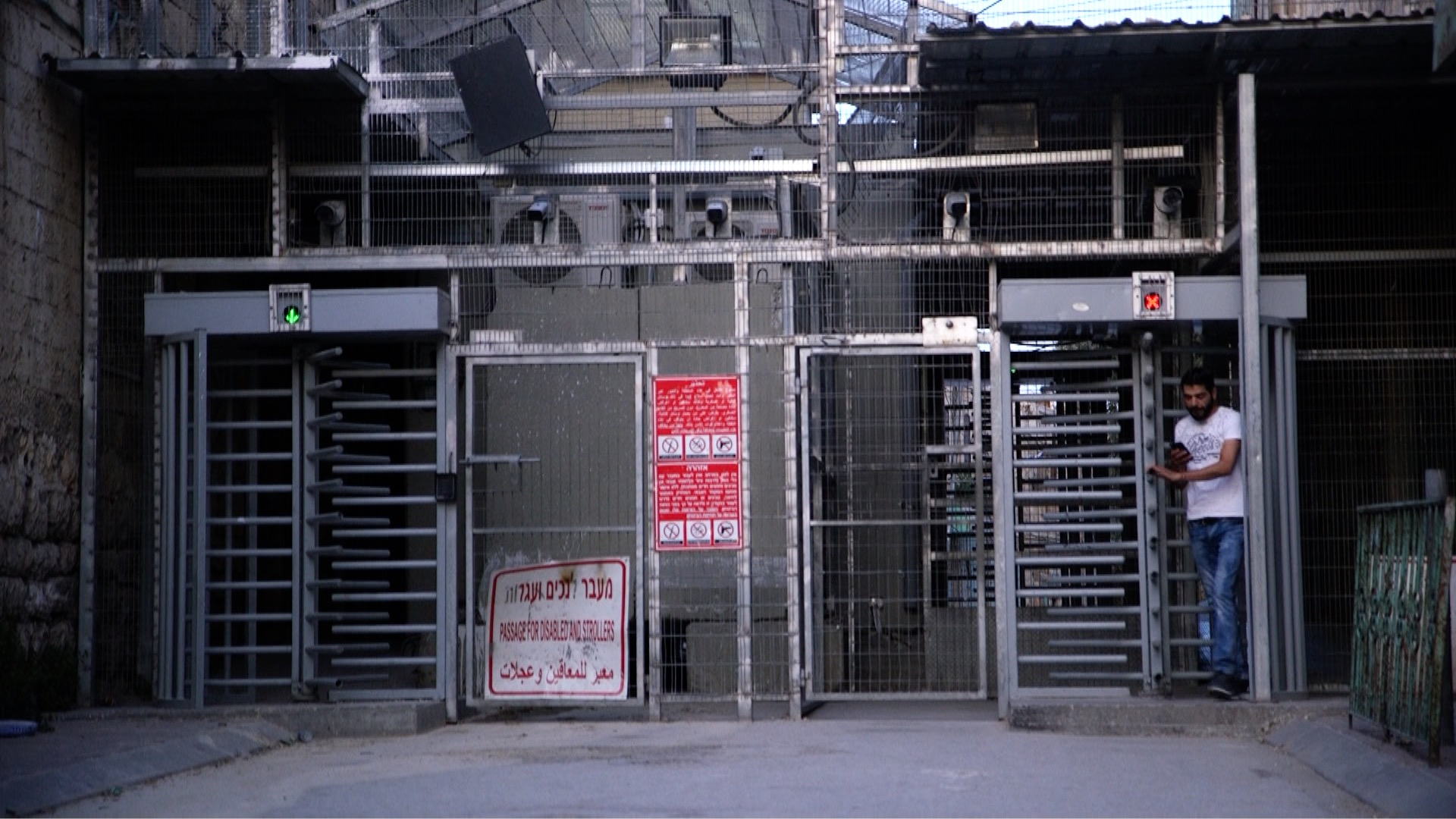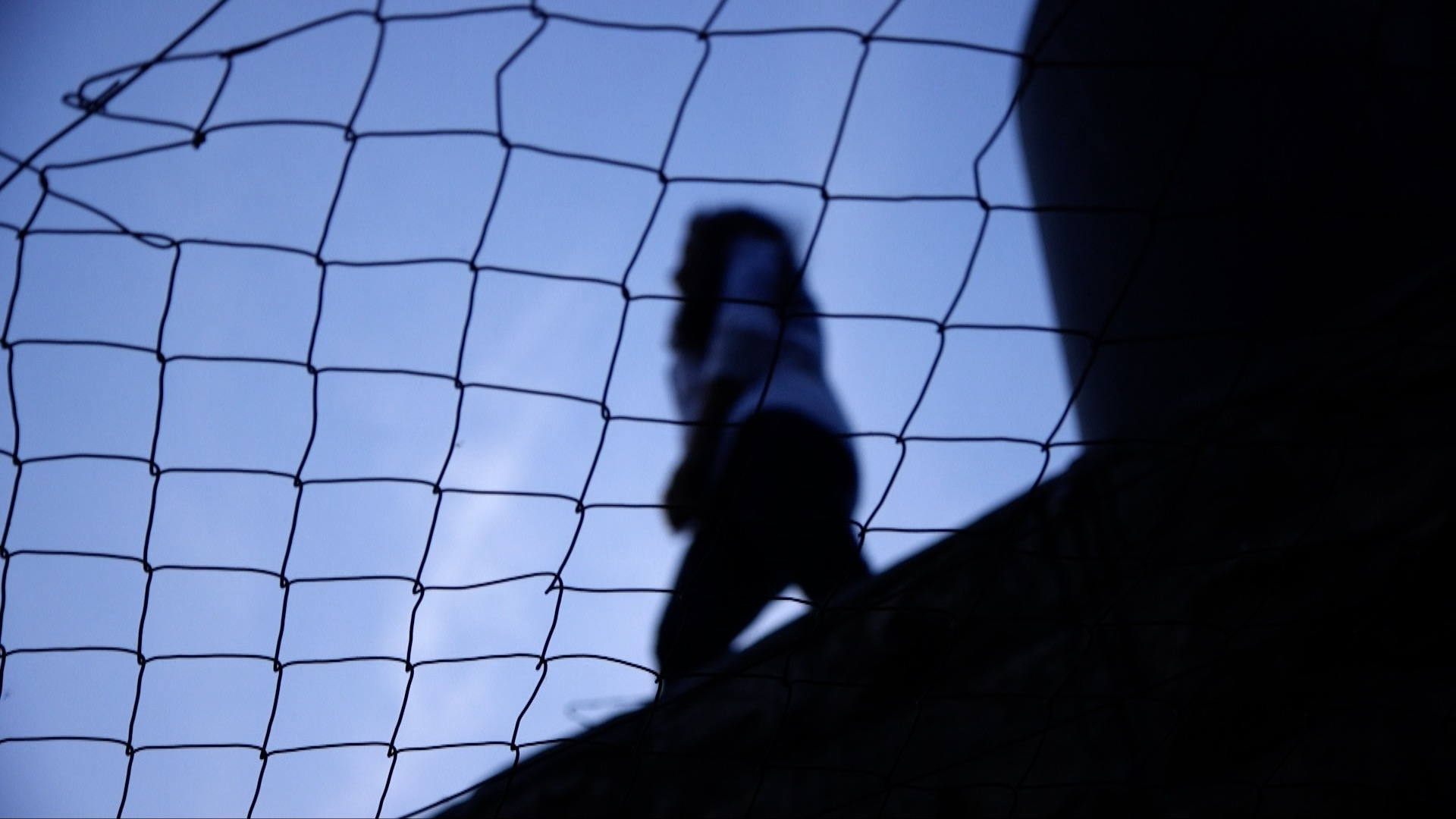

A "pop up" checkpoint in Hebron's H2 area. /CGTN Photo
There isn't one single member of 25-year-old Sundos Azza's family who hasn't been attacked by Jewish settlers.
"They throw rocks and wine bottles, sometimes full, sometimes empty, (or) plastic bags filled with urine or worse. My father had to be hospitalized when they hit him in the head with a rock," said Sundos.
Her neighbors and friends have also been attacked throughout the years.
Sundos lives in Hebron's H2 area, which is controlled by Israel's army and populated by 34,000 Palestinians and 700 Jewish settlers.
Palestinians navigate multiple military checkpoints that sometimes randomly "pop up" in the city while settlers are free to move about at will.
The army conducts routine nighttime raids on Palestinian homes and settlers sometimes attack Palestinians, yet most of the time, they are not held accountable for the attacks.

25-year-old Sundos lives in Hebron's H2 area with her family. /CGTN Photo
"They want us out. That's the aim. This is our land, these are our houses. The settlers hope to make life so bad for us that we move. Then they'll take over our houses."
Hebron: the thorniest town in the Palestinian-Israeli conflict
Jewish settlers, backed by Israel's government, lay claim to Hebron as a historical biblical site of thousands of years ago linked with the biblical figure Abraham.
Palestinians also honor Hebron as the home of forefather Abraham and in Islam, it is considered one of the four holy cities.
During the 1967 War Israel wrested control of Hebron from Jordan, occupying the city with its Palestinian inhabitants. In the late 1990s, an agreement to split the city into H1 controlled by the Palestinian Authority and H2 controlled by Israel saw the redeployment of Israeli troops in the city.

The wire net built by the Azza family above the entrance to their house protects the building from objects throwing down the hilltop. /CGTN Photo
Daily life is impossible
Sundos says daily life is impossible. Meters away, an Israeli army guard post, an apartment block occupied by Jewish settlers and the home of infamous settler Baruch Marzel are perched on a hilltop looking down on her family home.
Marzel is known for his terrorist background and for violent acts committed against Palestinians. He also has a long criminal record.
The Azza family built a wire net above the entrance to their house to protect them from objects hurtled down the hilltop.
"I'm an optimist and I hope for peace. But if Israel keeps putting up checkpoints and treating us badly, it doesn't seem like they want peace. I don't mind Israelis but the settlers (here are hard to live with). I want to get a Master's degree in education and live somewhere else, where I can be free," Sundos said.

Copyright © 2018 CGTN. Beijing ICP prepared NO.16065310-3
Copyright © 2018 CGTN. Beijing ICP prepared NO.16065310-3